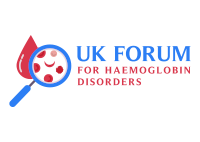UK Forum Committee Members
Mouse over name for more information.
Mr John James
Ms Roanna Maharaj
Annette Blackmore
Dr Luqmani Asad
Mouse over name for more information.
Mr John James
Ms Roanna Maharaj
Annette Blackmore
Dr Luqmani Asad
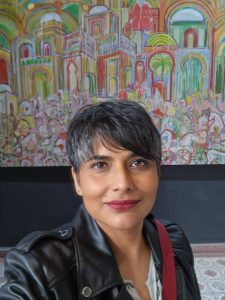 Dr Subarna Chakravorty is a Paediatric Haematologist with a special interest in non-malignant haematology and stem cell transplant for haemoglobinopathy and non-malignant diseases. She joined King’s College Hospital as consultant in July 2015. Prior to that, Subarna led the Paediatric Haemoglobinopathy service at Imperial College Healthcare NHS Trust and the Imperial Paediatric Red Cell Disorders Network for 5 years, where she was also involved in the bone marrow transplant programme for paediatric haemoglobinopathy. Since 2021, Subarna has been involved in the adult sickle cell bone marrow transplant service at King’s College Hospital.
Dr Subarna Chakravorty is a Paediatric Haematologist with a special interest in non-malignant haematology and stem cell transplant for haemoglobinopathy and non-malignant diseases. She joined King’s College Hospital as consultant in July 2015. Prior to that, Subarna led the Paediatric Haemoglobinopathy service at Imperial College Healthcare NHS Trust and the Imperial Paediatric Red Cell Disorders Network for 5 years, where she was also involved in the bone marrow transplant programme for paediatric haemoglobinopathy. Since 2021, Subarna has been involved in the adult sickle cell bone marrow transplant service at King’s College Hospital.
Subarna is currently the National Specialty Adviser and chair of the Clinical Reference Group for Haemoglobinopathy in NHS England. She was the national lead for the UK Haemoglobinopathy Peer Reviews, 2018-2020. She is one of the clinical leads at the Southeast London and South East England Region Haemoglobinopathy Coordinating Centre for Sickle Cell Disesase. She is a trustee of the British Society for Haematology and the UK Forum on Haemoglobin Disorders. Subarna is interested in clinical and molecular research in sickle cell disease and is involved in a number of projects at King’s College London.
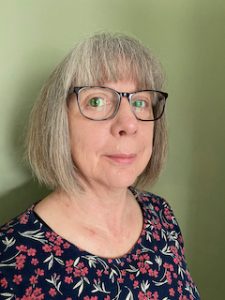 I have accumulated over 40 years of experience in the fields of transfusion science and clinical transfusion. Qualifying in 1984 as a registered Biomedical Scientist while working for NHS Blood and Transplant, I later took on the management of the Transfusion Laboratory at Oldchurch Hospital before finally moving to North Middlesex University Hospital NHS Trust in the early 1990s. It is here that I became interested in the transfusion needs of patients with inherited red cell disorders. Thanks to the support and encouragement of Dr Anne Yardumian, the Red Cell Consultant Lead, I had the opportunity to become more deeply involved in an expanded patient-facing role, supporting the wider clinical needs of transfusion-dependent patients beyond ensuring the delivery of the right blood to the right patient.
I have accumulated over 40 years of experience in the fields of transfusion science and clinical transfusion. Qualifying in 1984 as a registered Biomedical Scientist while working for NHS Blood and Transplant, I later took on the management of the Transfusion Laboratory at Oldchurch Hospital before finally moving to North Middlesex University Hospital NHS Trust in the early 1990s. It is here that I became interested in the transfusion needs of patients with inherited red cell disorders. Thanks to the support and encouragement of Dr Anne Yardumian, the Red Cell Consultant Lead, I had the opportunity to become more deeply involved in an expanded patient-facing role, supporting the wider clinical needs of transfusion-dependent patients beyond ensuring the delivery of the right blood to the right patient.
I have a passion for my chosen career, loving transfusion science as much now as when I first started. I have actively encouraged this passion in others, being involved in the training and education of biomedical scientists, nurses and clinicians. At a national level, I have been instrumental in the development of the role of Transfusion Practitioners, sit on a number of specialist advisory boards, and have examined for the Institute of Biomedical Scientists and the Royal College of Pathologists. My work has been recognised internationally with invitations to speak at conferences and through publications.
It has been an honour and a privilege to have had the opportunity to work with patients having inherited red cell disorders. They have taught me so much, both in a professional and a personal capacity, about what is important and what is not so important in living with their disorder and its management. I am delighted to have been invited to be a trustee for the UK Forum for Haemoglobin Disorders and I hope that my background as an allied health professional, along with my passion for improving the quality and accessibility of care for all patients living with a red cell disorder, will bring a different perspective to the discussion and work of the committee.
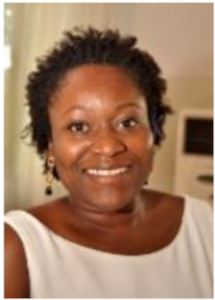 Dr Rachel Kesse-Adu is a consultant haematologist who qualified in medicine from Imperial College School of Medicine in 2002 and completed her specialist training in haematology at Kings College Hospital in London in 2012. She has specialist interest in haemoglobinopathies and medical education.
Dr Rachel Kesse-Adu is a consultant haematologist who qualified in medicine from Imperial College School of Medicine in 2002 and completed her specialist training in haematology at Kings College Hospital in London in 2012. She has specialist interest in haemoglobinopathies and medical education.
Her particular areas of interest in haemoglobinopathies are cardiorespiratory, chronic pain and urological complications. She runs joint specialist clinics in these areas. She is involved in clinical research in sickle cell disease and is the Training program director for haematology in SE London.
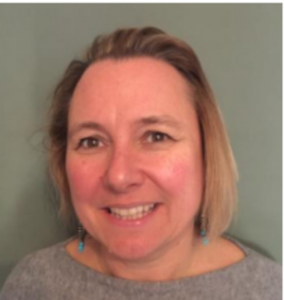 Dr Jo Howard is a Consultant Haematologist at Guy’s and St Thomas’ NHS Foundation Trust, London, UK, and Honorary Professor in Haemoglobinopathies at King’s College London. She is lead for the adult haemoglobinopathy service with responsibility for more than 700 patients, the majority of whom have sickle cell disease. She is network lead for the South Thames Sickle Cell and Thalassaemia
Dr Jo Howard is a Consultant Haematologist at Guy’s and St Thomas’ NHS Foundation Trust, London, UK, and Honorary Professor in Haemoglobinopathies at King’s College London. She is lead for the adult haemoglobinopathy service with responsibility for more than 700 patients, the majority of whom have sickle cell disease. She is network lead for the South Thames Sickle Cell and Thalassaemia
Network and lead for the Haemoglobinopathy Coordinating Centre for South East London and the South East.
Her research interests are in the management of sickle cell disease (SCD) in adults and she has been principal investigator or co-investigator in several clinical trials in SCD including the Transfusion Alternatives in Sickle Cell Disease (TAPS) trial, Hemoglobin Oxygen Affinity Modulation to Inhibit HbS Polymerization (HOPE) and Prevention of Morbidity in sickle cell disease (POMS).
She has authored over 50 peer reviewed papers, book chapters and a textbook. She is chair of the British Society of Haematology Guidelines group and has contributed to national and international guidelines for the care of patients with sickle cell disease (SCD) including the treatment of acute chest syndrome, the use of hydroxycarbamide and the role of blood transfusion. She was the editor of the UK Standards for care of Adults with SCD which was released in May 2018. She was chair of the UK Forum for Haemoglobin Disorders (2016-2019) and chaired the UK peer review of services for Haemoglobinopathies (2012-2017). She is now chair for the
Clinical Reference Group for Haemoglobin Disorders for NHS England.
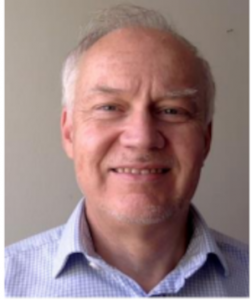 Dr Paul Telfer is clinical lead for Haemoglobinopathy services at Bart’s Health NHS Trust and the East London and Essex Clinical
Dr Paul Telfer is clinical lead for Haemoglobinopathy services at Bart’s Health NHS Trust and the East London and Essex Clinical
Haemoglobinopathy Network. He is committee member of the National Specialist Commissioning in Haemoglobinopathies, and
the National Sickle Cell and Thalassaemia Screening Programmes. He has co-authored national guidelines for management of children and adults with sickle cell disease, and for thalassaemia and is co-author of ‘Sickle Cell Disease in Clinical Practice’ published by Springer.
He is chief investigator for the SCAPE trial, the East London Newborn Sickle Cell Cohort Study and Cyprus Thalassaemia Cohort study.
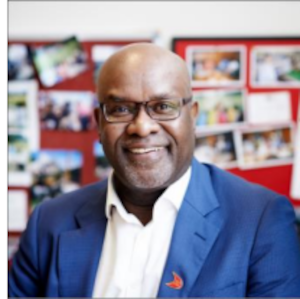 John James OBE has 33 years of experience within the NHS including 4 CEO roles. He was Chair of the West London Cancer network (2002-2005) and Chair of the North West London Diabetes Network (2003-2004).
John James OBE has 33 years of experience within the NHS including 4 CEO roles. He was Chair of the West London Cancer network (2002-2005) and Chair of the North West London Diabetes Network (2003-2004).
As a senior civil servant for the Department of Health he served as Program Consultant on leadership for the NHS Next Stage Review and then as Deputy Director for the NHS Medical Director/Director General. He has been Chief Executive of the Sickle Cell Society for the last 5 years.
In June 2018 John was awarded an OBE as part of the Queen’s Birthday Honours.
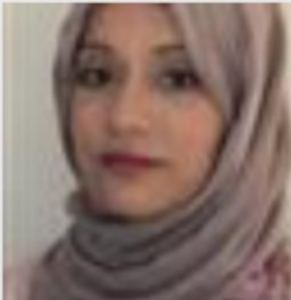 Dr Farrukh Shah, Consultant haematologist, expert in management of thalassaemia syndromes, transfusion and non-transfusion dependent and has a specialist interest in management of iron overload. Dr Farrukh runs joint clinics with the diabetes team and has a good grasp of endocrine complications affecting patients with iron overload. She looks after patients with sickle cell disease and other rare inherited anaemias as part of his routine practice.
Dr Farrukh Shah, Consultant haematologist, expert in management of thalassaemia syndromes, transfusion and non-transfusion dependent and has a specialist interest in management of iron overload. Dr Farrukh runs joint clinics with the diabetes team and has a good grasp of endocrine complications affecting patients with iron overload. She looks after patients with sickle cell disease and other rare inherited anaemias as part of his routine practice.
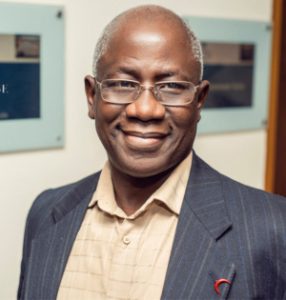 Baba Inusa graduated MBBS 1984, ABU Zaria, Nigeria. He is a Professor of Paediatric Haematology, King’s College London and Lead Consultant Paediatric Haemoglobinopathies, Evelina London Children’s Hospital, Guy’s and St Thomas NHS Foundation Trust. He is also a mentor, supervising PhD and Masters students at King’s College London, receiving students from Italy, China and the Middle East.
Baba Inusa graduated MBBS 1984, ABU Zaria, Nigeria. He is a Professor of Paediatric Haematology, King’s College London and Lead Consultant Paediatric Haemoglobinopathies, Evelina London Children’s Hospital, Guy’s and St Thomas NHS Foundation Trust. He is also a mentor, supervising PhD and Masters students at King’s College London, receiving students from Italy, China and the Middle East.
His main research activity and interest is in Sickle Cell Disease with over 70 publications in high impact journals focusing on Global Health, Newborn Screening, Stroke, Renal Disorders and health related quality of life. He is a reviewer for peer review journals, national and international publications and grant funders.
Baba is the Chief Investigator of ‘African Research Innovative Initiative for Sickle Cell Education’ (ARISE), an EU Horizon 2020 Marie Sklowdowska –Curie $2.1m grant (2019-2023) involving institutions in Europe (UK, France, Italy and Cyprus), USA, Africa (Kenya and Nigeria) and Lebanon.
He is the Founder and Director of the Academy for Sickle Cell and Thalassaemia Conference (ASCAT), an international meeting platform that is now in its 15th year (2020), supported by Sickle Cohort Research Foundation (SCORE).
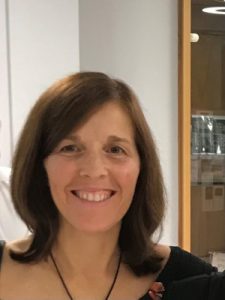 Annette Blackmore has been an adult registered nurse since qualifying in 1987 in Cardiff. Predominately working in the NHS, she has also enjoyed working in Parkland Memorial Hospital, Dallas, TX (1989-1991) which is where she first nursed patients with Sickle Cell Disorder.
Annette Blackmore has been an adult registered nurse since qualifying in 1987 in Cardiff. Predominately working in the NHS, she has also enjoyed working in Parkland Memorial Hospital, Dallas, TX (1989-1991) which is where she first nursed patients with Sickle Cell Disorder.
Having some gaps in her career to raise her 5 children, she commenced working in Haematology at University Hospital of Wales, Cardiff in 2009. There she was seconded into the role of Sickle cell and Thalassaemia nurse specialist for 6 months in 2015 and then returned to take on the role full time in 2017, insisting that the role evolved into an acute role to address the problems being faced by patients in the hospital setting.
Now working as part of a growing team funded by WHSCC, which will include youth worker, physiotherapist, and psychologist she will be over seeing the care of patients around South &West Wales.
She has been a member of the committee of UK Forum of Haemoglobinopathy disorders since 2019. Also assisted on the panel at Haemoglobinopathy peer review visits.
Since commencing her role in the service she has raised over £1000 for the Sickle Cell Society by completing a sponsored cycle around Cuba, and money for UK Thalassaemia Society by organising a “Drag Queen” night with one of the Thalassaemia patients performing. Also completed small fund raising events to fund the annual study days which are attended by secondary and primary care staff, plus the local patient’s support group.
 Living with a rare genetic condition herself, Roanna Maharaj is a seasoned patient advocate who believes the patient’s voice needs to be included throughout the continuum of care from preventative medicine to potentially curative therapies. She is passionate about addressing the health inequities facing her community and believes in supporting health care professionals to provide consistent and quality care throughout the United Kingdom.
Living with a rare genetic condition herself, Roanna Maharaj is a seasoned patient advocate who believes the patient’s voice needs to be included throughout the continuum of care from preventative medicine to potentially curative therapies. She is passionate about addressing the health inequities facing her community and believes in supporting health care professionals to provide consistent and quality care throughout the United Kingdom.
Roanna is a trustee of the UK Thalassaemia Society who leads on Public Health, Projects, and Patient Advocacy. She represents the UKTS and supports on National Haemoglobinopathy Panel, Clinical Reference Group (CRG) for haemoglobinopathies, UK Forum for Haemoglobin Disorders, Haemoglobinopathy Peer Review Steering Committee, Sickle Cell and Thalassaemia Screening Programme, National Institute for Care Excellence, Infected Blood Inquiry amongst others.
She holds a Bachelor of Science with honours in Psychology and a Master of Science with distinction in Health Psychology and is currently undertaking a PhD and doctoral training in Health Psychology.
